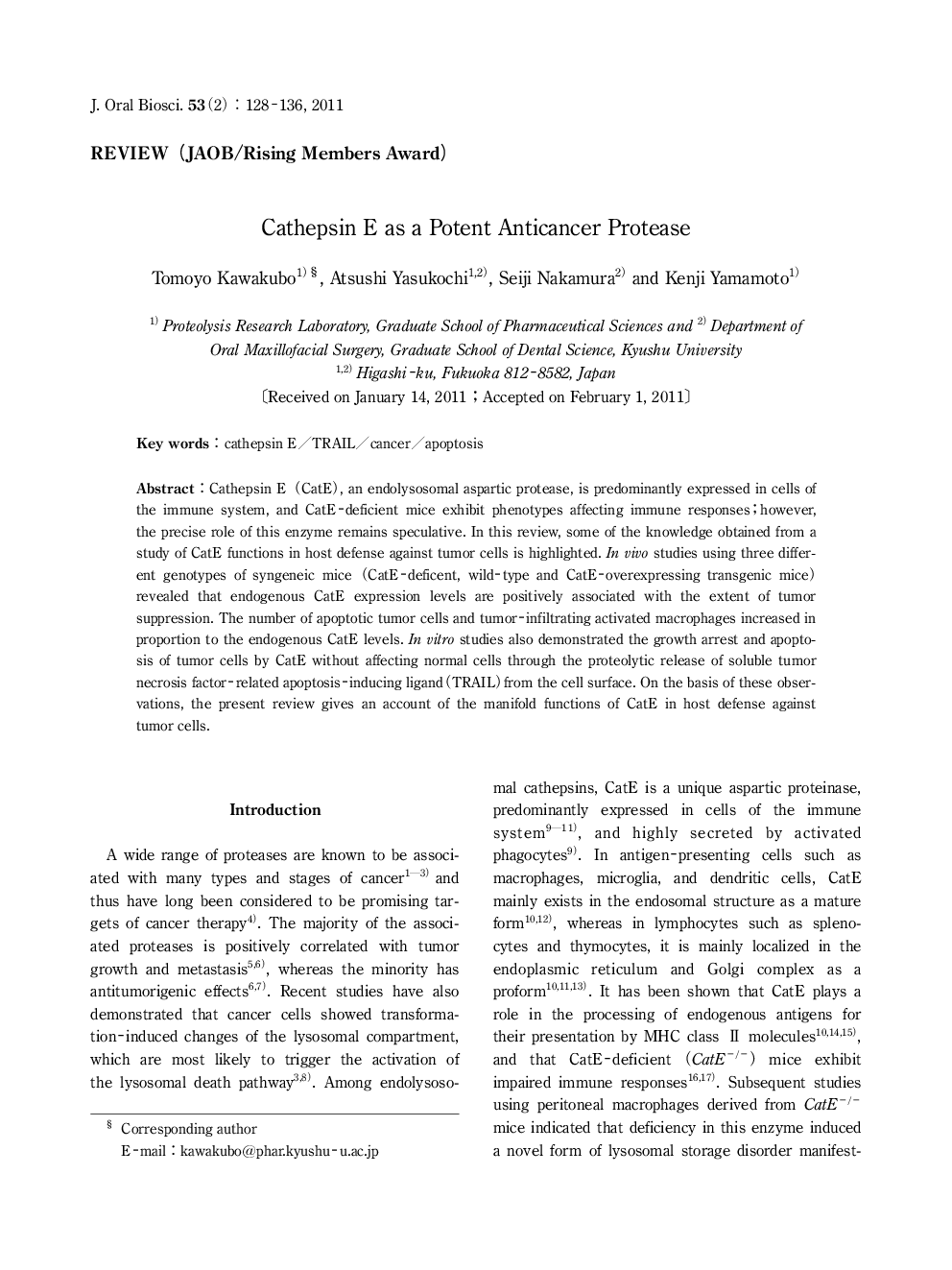| Article ID | Journal | Published Year | Pages | File Type |
|---|---|---|---|---|
| 2776900 | Journal of Oral Biosciences | 2011 | 9 Pages |
Cathepsin E (CatE), an endolysosomal aspartic protease, is predominantly expressed in cells of the immune system, and CatE-deficient mice exhibit phenotypes affecting immune responses; however, the precise role of this enzyme remains speculative. In this review, some of the knowledge obtained from a study of CatE functions in host defense against tumor cells is highlighted. In vivo studies using three different genotypes of syngeneic mice (CatE-deficent, wild-type and CatE-overexpressing transgenic mice) revealed that endogenous CatE expression levels are positively associated with the extent of tumor suppression. The number of apoptotic tumor cells and tumor-infiltrating activated macrophages increased in proportion to the endogenous CatE levels. In vitro studies also demonstrated the growth arrest and apoptosis of tumor cells by CatE without affecting normal cells through the proteolytic release of soluble tumor necrosis factor-related apoptosis-inducing ligand (TRAIL) from the cell surface. On the basis of these observations, the present review gives an account of the manifold functions of CatE in host defense against tumor cells.
